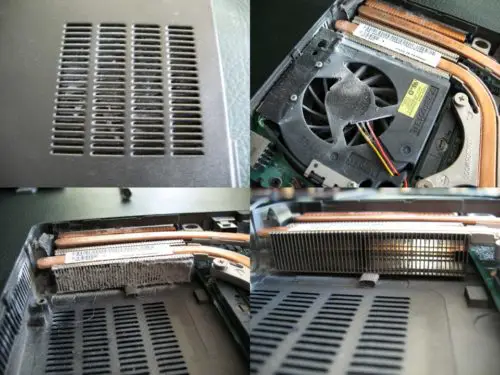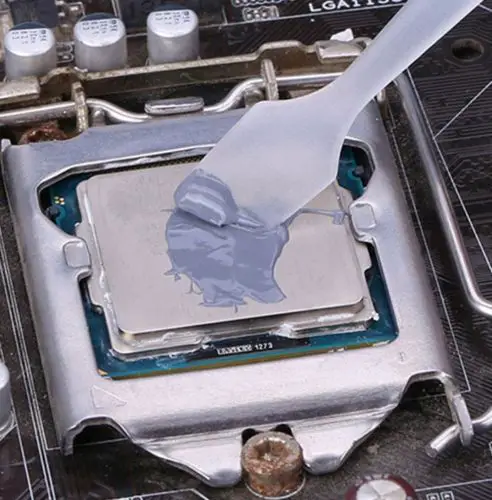Laptops are getting more powerful, thinner, and lighter. Unfortunately, the cooling systems are yet to catch up and properly cool powerful hardware in thin chassis.
There are other reasons why your laptop is overheating. But, the reason mentioned above is the number one cause of overheating in your laptop.
Why is my laptop overheating?
In this article, we will discuss all why your laptop is overheating and how you can fix it.
5 Reasons Why Is My Laptop Getting So Hot
There are several reasons why your laptop might be overheating. So you have to determine the main cause or culprit.
Poor Cooling System
Some laptop just has bad cooling systems even if the exhaust vents are a lot.
The heat pipes are a few and the fans are not able to push out hot air very quickly. This causes your laptop to overheat especially under demanding loads.
Design and Form-factor of The Laptop
Thin laptops with powerful hardware are always going to overheat unless their processor and GPU are power-efficient.
For example, try putting a car engine in a small room with small windows. The room is going to be very hot and the car engine will also overheat and get destroyed.
The same thing happens when you put powerful hardware in a thin laptop.
Dirt
Another reason might be that dirt has settled in your laptop and it’s blocking the vents. You need to check by opening the laptop and see if any dirt on the hardware.

It Might Be Old
Old laptops tend to overheat a lot. The fans are not able to work as well as when it was new. Maybe it’s time to get a new laptop.
You Might Be Blocking The Air
Do you use your laptop on the bed? Then maybe the bed sheets or pillows are blocking the air vents.
Putting it on your lap might also block the vents especially if it has underside ones. On the table, books or other items might block the air vents.
Here is a video for you to be guided well in cleaning out dust inside your laptop.
7 Ways on How To Fix Laptop Overheating
So you know the causes of your laptop overheating. Next is to solve the overheating problem. And here is how you do it.
Undervolting
Undervolting is usually done mostly by gamers or tech savvy people. You basically reduce the amount of voltage used by the CPU or GPU.
And this reduces temperatures and thermal throttling because less energy is needed which results in less heat being produced.
Our article – why should undervolt and underclock – fully explains the benefits of taking such action.
Apply Thermal Paste
Thermal paste is a material that improves the heat conductivity of your cooling system. Heat is efficiently transferred by the heat pipes preventing overheating.
Combining thermal paste application and undervolting is the best way to stop high temperatures.

Regularly Clean Your Laptop
This is pretty straightforward. Open your laptop and thoroughly clean the inside, especially the vents.
Doing this once every few months will not only prevent your overheating problems. That is if your laptop has a good cooling system.
Use your Laptop On a Colder Environment
It might be that you work in a hot environment. If that is so the only solution is to work in a cooler environment.
A well-ventilated room will do wonders in keeping your laptop cool. You can also invest in a cooling pad or work close to a standing fan (AC is recommended).
Modify Your Laptop’s Fan Speed
You can modify the speed of your laptop fan to improve its cooling capability. The downsides are more power consumption and loud fan noises.
You can install SpeedFan if you are using Windows, or smcFanControl if you are using OS to control your laptop’s fan speed.
A loud fan that makes your laptop cool is better than the overheating one.
Reducing The Number of Applications Being Run
Running numerous applications will cause the CPU to work harder and in turn produce more heat.
For example, running at top speed will make you sweat more than walking. What you can do is to close applications that are not being used.
Also, to find out applications consume a lot of CPU resources. You can access Windows Task Manager and Activity Monitor for Windows and Mac respectively.
They give information on the amount of CPU usage. You can then decide which applications to close or keep running.
Place Your Laptop On a Flat Surface
Using your laptop on an uneven surface e.g. bed might block the vents or prevent hot air from escaping.
Placing the laptop on a flat surface or lap desk ensures hot air can escape. And this prevents the build-up of high temperatures.
Final Thoughts
Overheating and high temperatures are something every laptop user doesn’t want to encounter.
Not taking care of the problem will shorten your laptop’s lifespan and reduce performance. Fortunately, you know what to do when you get the short end of the stick.
That’s it on why is my laptop overheating and how to solve it.
